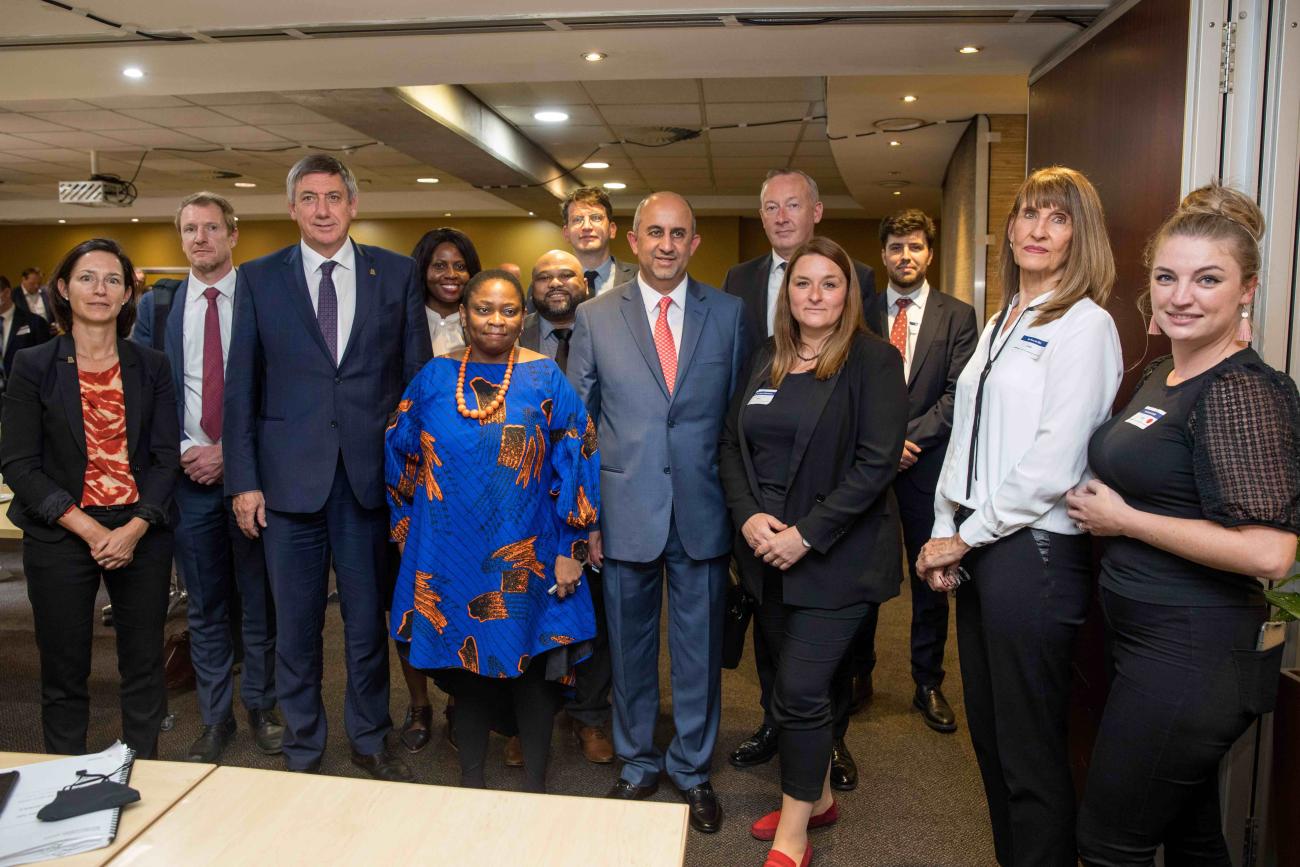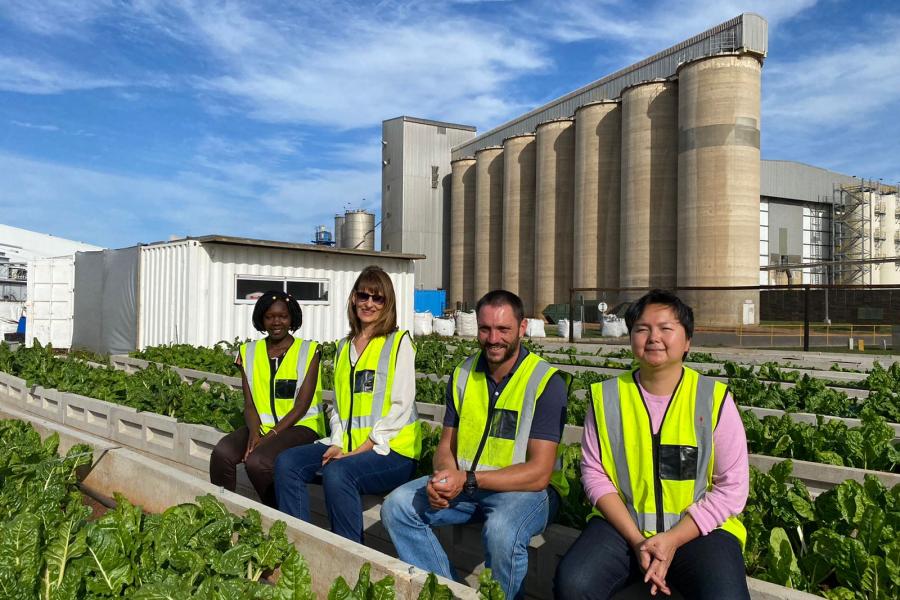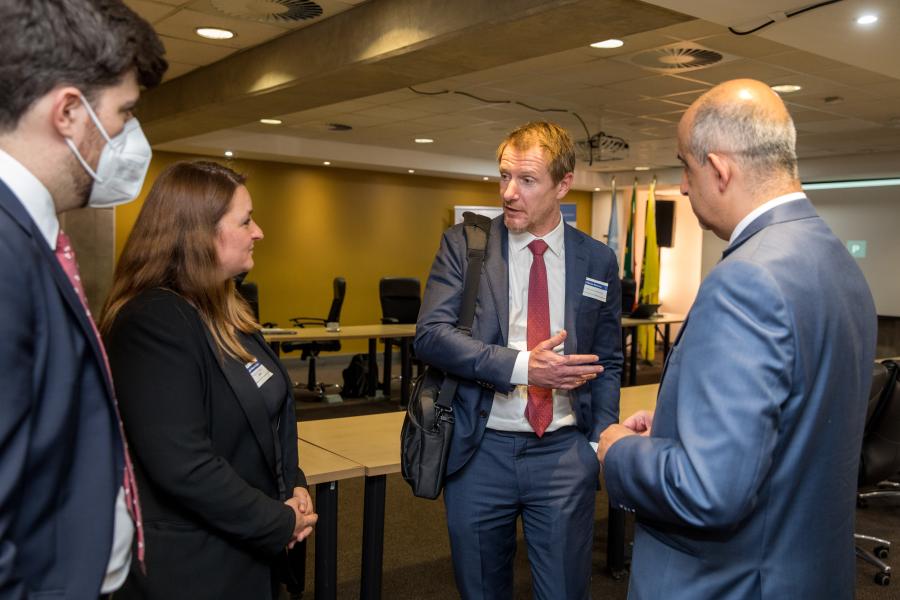New Flanders-South Africa project on climate change adaptation in industries bearing fruit

The Government of Flanders has approved funding of 2.4 million Euro (about R40m) for the project.
The United Nations Industrial Development Organisation (UNIDO) and its partners have officially launched a new project to strengthen the adaptation capacity of industry for a green and resilient economy in South Africa.
Focusing on the agro-processing sector, the objective of the project is to support industry in making its operations more resilient to climate change, avoiding negative impacts on the environment and people, and better preparing for future climate change stresses.
The launch event was attended by various high-level officials, including the Minister-President of Flanders, Mr. Jan Jambon; the Ambassador of Belgium in South Africa, Mr. Didier Vanderhasselt; the Acting Director General of the Department of Trade, Industry and Competition (the dtic), Ms. Malebo Mabitje-Thompson; the then UNIDO Representative in Southern Africa, Mr. Khaled El Mekwad; the Diplomatic Representative of Flanders in South Africa, Dr. Geraldine Reymenants; and other senior private sector and government representatives of the two countries.
The Government of Flanders has approved funding of 2.4 million Euro (about R40m) for the project, which will address the barriers that are currently hampering the adoption of climate change adaptation measures and technologies in industry and enable the private sector to capitalize on the opportunities to shift towards a green economy. The project is also strongly aligned with South Africa’s national priorities and the relevant policy initiatives and activities such as the National Development Plan, the National Adaptation Plan and the National Climate Change Response Policy.
The project, which will run over three years, consists of three components that will be implemented by UNIDO, in collaboration the National Cleaner Production Centre South Africa (NCPC-SA) and the Technology Innovation Agency (TIA).
The NCPC-SA will be responsible for the component dealing with the application of renewable energy and energy and water use efficiency interventions in pilot enterprises, drawing on the successful implementation of other joint projects with UNIDO, including the multi-award winning South African Industrial Energy Efficiency project and the Global Eco-Industrial Park project.
The impact and benefits of the interventions in the pilot enterprises will be widely showcased and shared to promote broader implementation of and investment in such measures and technologies in industry.

TIA will lead the project component aimed at the acceleration of industrial innovation on climate adaptation, building on the methodology of UNIDO’s industry-leading Global Cleantech Innovation Programme for clean technology entrepreneurs and start-ups with climate mitigation innovations. TIA has been spearheading the implementation of the GCIP in South Africa since 2014.The third component, which will be led by UNIDO, will focus on strategic partnerships with academia, industry and umbrella organizations to ensure that climate-resilient approaches are sustained and scaled up across the economy.
There will be a strong focus on ensuring the involvement of women in all the project components, and partnerships between Flemish and South African institutions are encouraged.Speaking at the launch event, Mr. Jambon described the SAIA project as the latest chapter in Flanders and South Africa’s rich history of cooperation dating back to the democratic transition in 1994.
“Development cooperation has been an important pillar of our partnership. SAIA represents the beginning of a renewed and strengthened partnership with a focus on innovation, building on past experience linked to a future in which South Africa and Flanders institutions can exchange knowledge to the benefit of both our societies,” he said.
Affirming this sentiment, Ms. Malebo Mabitje-Thompson said a green transition has to allow for co-creation and mutual benefit.
“Innovation and collaboration must assist every single country to industrialize in order to take people out of poverty towards a more just world. We believe that by accelerating this transition, SAIA will create job opportunities and innovation in South Africa, by South Africans.”

Mr. Nikolas Bosscher, Deputy General Representative of the Flemish government in South Africa, outlined the business case for the project: “Climate change is a global reality that businesses cannot ignore. The transition pathway can be an instrument for companies to realise resilience, improve operational efficiency and attract investment. More and more, the financial sector will look at environmental, social and governance criteria.”
“The project will also build partnerships to bring knowledge institutions and the private sector together to create awareness, strengthen capacities and share knowledge of climate change adaptation within the industry, he said.
Mr. El Mekwad said that the project would serve as a platform to catalyse private sector development for both countries, especially with the opening up of economies following the COVID-19 pandemic.“There is a strong linkage between UNIDO’s mandate to promote Inclusive and Sustainable Industrial Development and the mission of the dtic, namely to make South Africa a more industrial and globally competitive country by encouraging exports, international trade and investment, in addition to industrial development,” he explained.
Mr. El Mekwad confirmed that there was still an opportunity for interested parties to get involved in the project. “We are inviting companies, project developers and technology or service providers looking for co-financing or technical assistance to implement a water-energy nexus project in the agro-processing sector in South Africa, to contact us for more information on the application and selection process,” he said.










